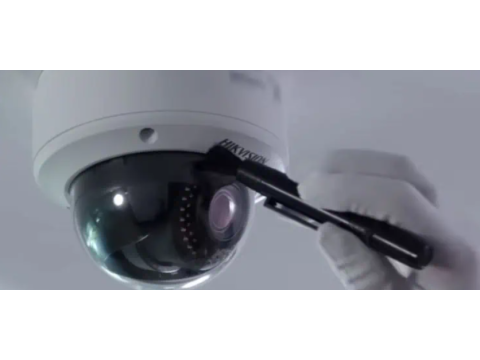Comprehensive Guide to Video Surveillance Maintenance
Regular maintenance of video surveillance systems is essential to ensure their reliability and efficiency. This guide provides insights into why maintenance matters, how it works, and the critical elements of a service contract.
Importance of Maintenance
A well-maintained video surveillance system ensures:
- Reliability: Reduces downtime caused by unexpected failures.
- Longevity: Prolongs the lifespan of cameras and recording equipment.
- Performance: Keeps your system running at peak efficiency.
Key Maintenance Tasks
1. Periodic Inspections
- Check cabling for wear, damage, or loose connections.
- Ensure power supplies deliver stable voltage.
- Test camera functionality, including night vision and motion detection.
2. Cleaning
- Lenses should be cleaned to avoid blurred or obstructed images.
- Remove dust from equipment to prevent overheating.
3. Software Updates
- Update firmware for cameras and recorders to fix bugs and enhance features.
- Ensure cybersecurity protocols are up-to-date.
4. System Tests
- Verify the integrity of recorded footage.
- Test remote access and backup processes.
IP Surveillance System Considerations
IP-based systems require specialized attention:
- Network reliability: Monitor bandwidth and signal strength.
- Firmware updates: Keep cameras and recorders compatible with the latest software.
- Remote troubleshooting: Utilize built-in diagnostics for faster problem resolution.
Maintenance Contract Essentials
A maintenance contract formalizes the relationship between the service provider and the system owner.
Key Elements to Include
Scope of Services
- Regular inspections, cleaning, and firmware updates.
- Troubleshooting and emergency repairs.
Frequency of Service
- Define monthly, quarterly, or annual service intervals.
Cost Structure
- Fixed fees for scheduled maintenance.
- Separate rates for repairs or parts replacement.
Responsibilities
- Provider’s commitment to response times and repair quality.
- Owner’s obligation to provide access and timely payments.
Duration and Renewal
- Specify contract length and renewal terms.
Benefits of Maintenance Contracts
- Reduces long-term repair costs.
- Provides a professional response to system issues.
- Ensures compliance with legal and operational standards.
Troubleshooting Common Issues
1. Power Failures
- Inspect power sources and backup systems.
2. Signal Interference
- Check for loose connections and damaged cables.
3. Camera Malfunctions
- Replace defective cameras or adjust lens focus.
4. Recording Problems
- Test hard drives for errors and ensure enough storage capacity.
Choosing a Maintenance Provider
For the best results:
- Work with the installer of your system, as they are familiar with its setup.
- Verify the provider’s expertise in your specific surveillance technology (analog or IP).
- Look for flexible contracts that cater to your specific needs.
Conclusion
- Maintenance Saves Costs: Preventative care reduces expensive repairs.
- System Longevity: Proper upkeep ensures years of reliable performance.
- Customized Contracts: A tailored agreement provides the best value and peace of mind.
Investing in regular maintenance for your video surveillance system ensures it will function effectively when you need it most.

